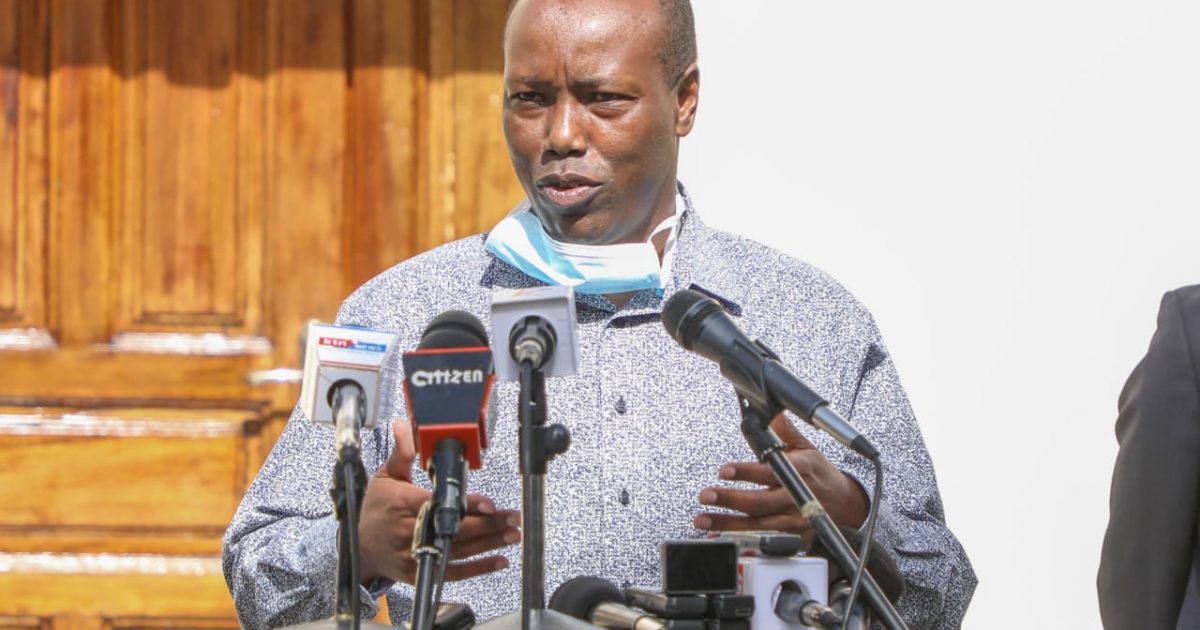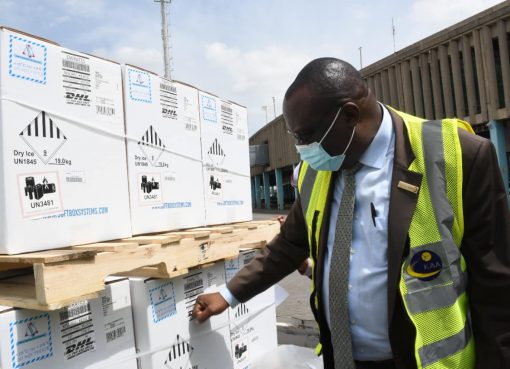Security patrols have been intensified at entry points of Nakuru County’s porous borders to enforce immediate cessation of movement in and out of the Nairobi Metropolitan area in the fight against the Coronavirus.
Governor Lee Kinyanjui said his administration and the County Security Committee had formed a joint enforcement team that has started cracking down on matatus, motorcycles and members of the public from Nairobi sneaking in and out of the county at will.
Governor Kinyanjui said the devolved unit and the Security Committee chaired by County Commissioner Erastus Mbui Mwenda had reached out to administrative units of Nyandarua, Kajiado, Kiambu and Narok Counties in blocking clandestine routes used to beat the travel ban in and out of Nairobi.
The governor said enforcement officers on leave had been recalled to beef up national government’s security personnel.
Last Monday while speaking from State House Nairobi President Uhuru Kenyatta declared Nairobi, Mombasa, Kwale and Kilifi counties Covid-19 hotspots and banned movement in and out of those counties for the next 21 days.
In his address to the nation the President said that Nairobi accounted for 82 per cent of the total infections while the Coastal counties account for 14 per cent hence the order.
“To contain and limit the spread of the disease to other parts of the country, the National Security Council has sanctioned and caused the issuance of the following additional measures, as follows: That there shall be a cessation of all movement by road, rail or air in and out,” President Uhuru announced.
He added “The Nairobi Metropolitan Area is designated as Nairobi City County, part of Kiambu County up to Chania River Bridge (Thika), including Rironi, Ndenderu, Kiambu town; part of Machakos County up to Athi River, including Katani; part of Kajiado County including Kitengela, Kiserian, Ongata Rongai and Ngong town; and all other areas as set out in the Order.”
Speaking today as he gave his daily updates on the status of COVID-19 Governor Kinyanjui said more patrol vehicles had been deployed to ensure compliance with the travel ban adding that only essential service providers will be allowed to move in and out of Nakuru provided they meet set conditions.
He listed essential service providers as cargo-carrying trucks, medical personnel, journalists, security officers and national government administration officers.
“For cargo-carrying vehicles, the goods must be visible or the driver must have documentation of proof of loaded cargo. Police will check the cargo. In the case of unloaded cargo vehicle, the driver shall bear such documentation of proof of either being mobile to collect cargo or after dropping off of cargo.
The driver of the cargo vehicle must have a maximum of three assistants who must have letters from the vehicle owner indicating their names and details, origin and destination of the journey and the nature of cargo on board,” said the governor.
At the same time Mr Kinyanjui said the Covid 19 outbreak had impacted negatively on service delivery and implementation of projects by the County government.
He said the month of March was critical for the devolved unit as many ratepayers and businessmen paid their annual revenue during this period and that closure of businesses and reduced returns had resulted in dwindled revenue collection by the County.
The governor revealed that Nakuru County was facing one of its worst financial years after supplementary budget tabled in the Assembly on Wednesday revealed a deficit of Sh800 million.
The massive financial gap comes at a time Mr Kinyanjui’s administration is planning to spend Sh250 million on food and equipment to mitigate against coronavirus pandemic.
The county is also planning to enhance emergency fund by Sh40 million.
The county also wants Sh43 million additional funds to be allocated to the department of Health to purchase drugs and Personal Protective Equipment.
Mr Kinyanjui appealed to financially stable business enterprises and individuals to honour their debt obligations to the county to enable it promote health care services and secure the wellbeing of the vulnerable members of the society in the wake of Covid-19 outbreak.
He expressed concern that majority of the residents were not taking seriously guidelines issued by the health ministry to combat spread of the deadly virus.
The governor cautioned public transport vehicles and business premises that do not observe social distancing would have their licenses revoked and owners prosecuted.
The County Covid-19 Emergency Response Team noted Mr Kinyanjui was conducting a baseline survey to identify vulnerable members of the society who will require humanitarian assistance.
The County boss announced that his administration will unveil a command centre which will team up with the Regional Covid-19 Command Centre unveiled by Regional Commissioner George Natembeya linking all the 14 counties of Rift Valley region.
Kinyanjui said each of the eleven Sub-Counties will be required to get detailed reports from every village on the status of the population, details of persons who have arrived from other areas and any individual exhibiting symptoms of the deadly Covid-19 disease.
He said the Council of Governors was in talks with the National government on how to cushion Water Service Providers (WSPs) that have been directed to supply the commodity to residents without disconnections.
The governor revealed that his administration had revived ten collapsed water community projects in various rural parts of the county to enhance supply of water and ensure high sanitation standards to curb the spread of Covid-19.
By Anne Mwale





